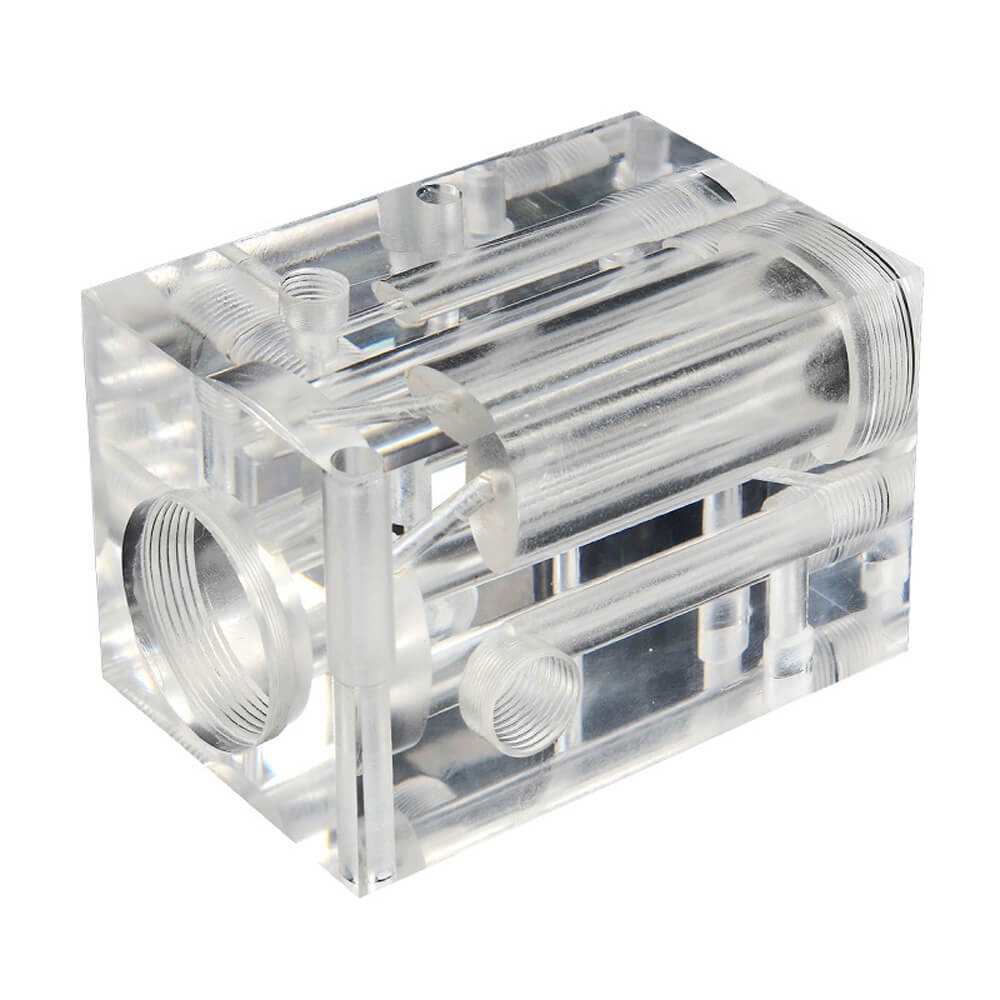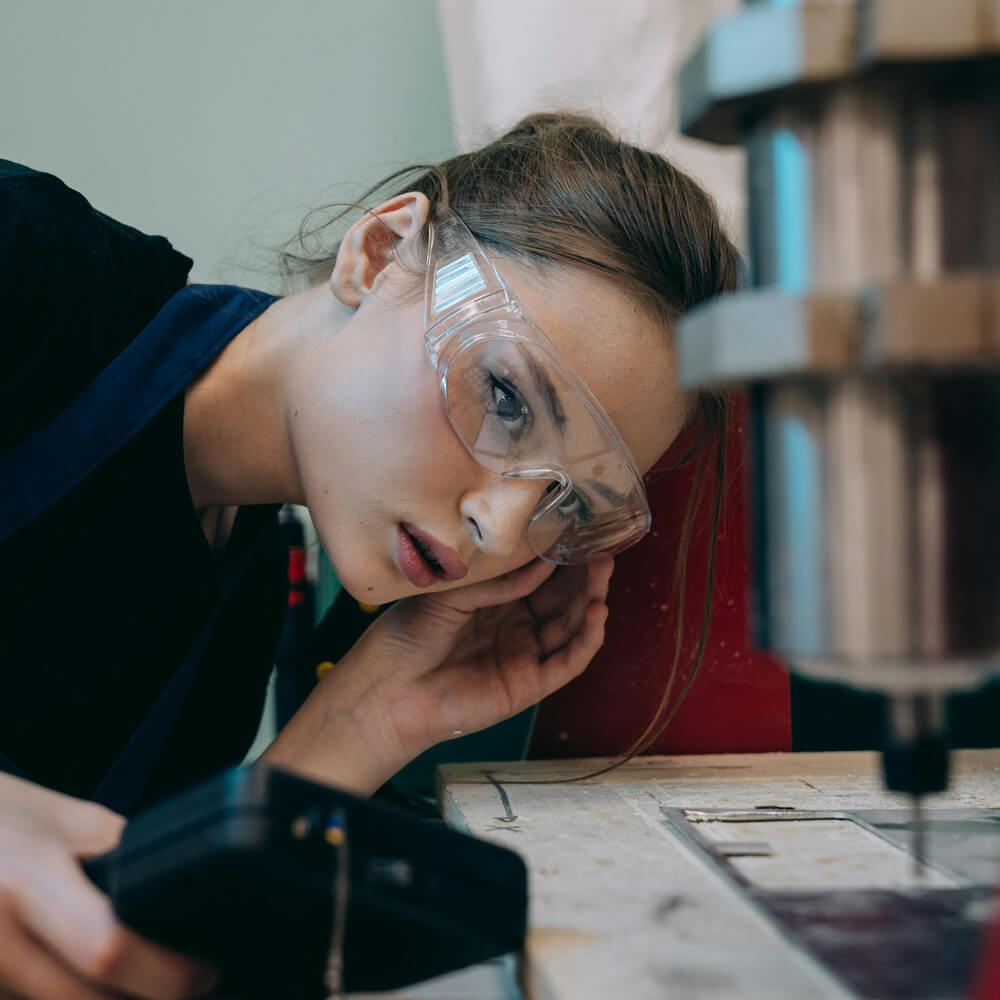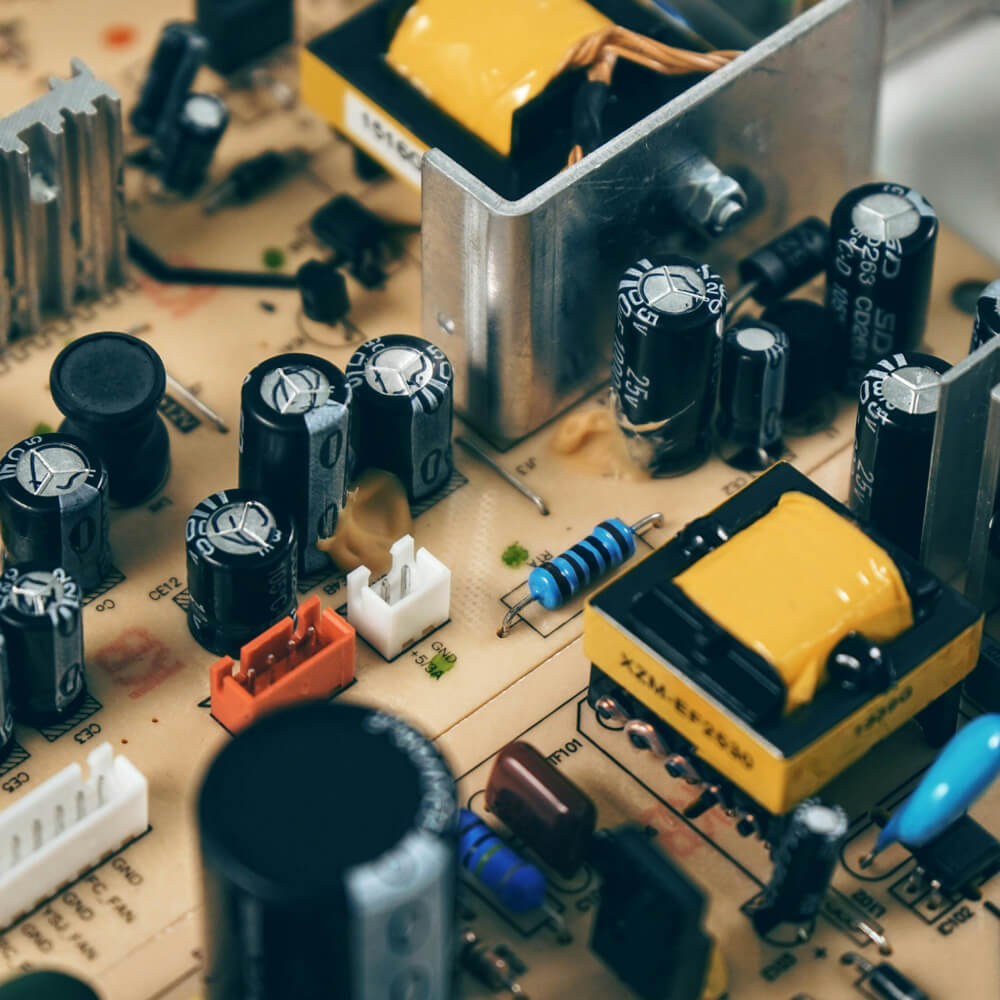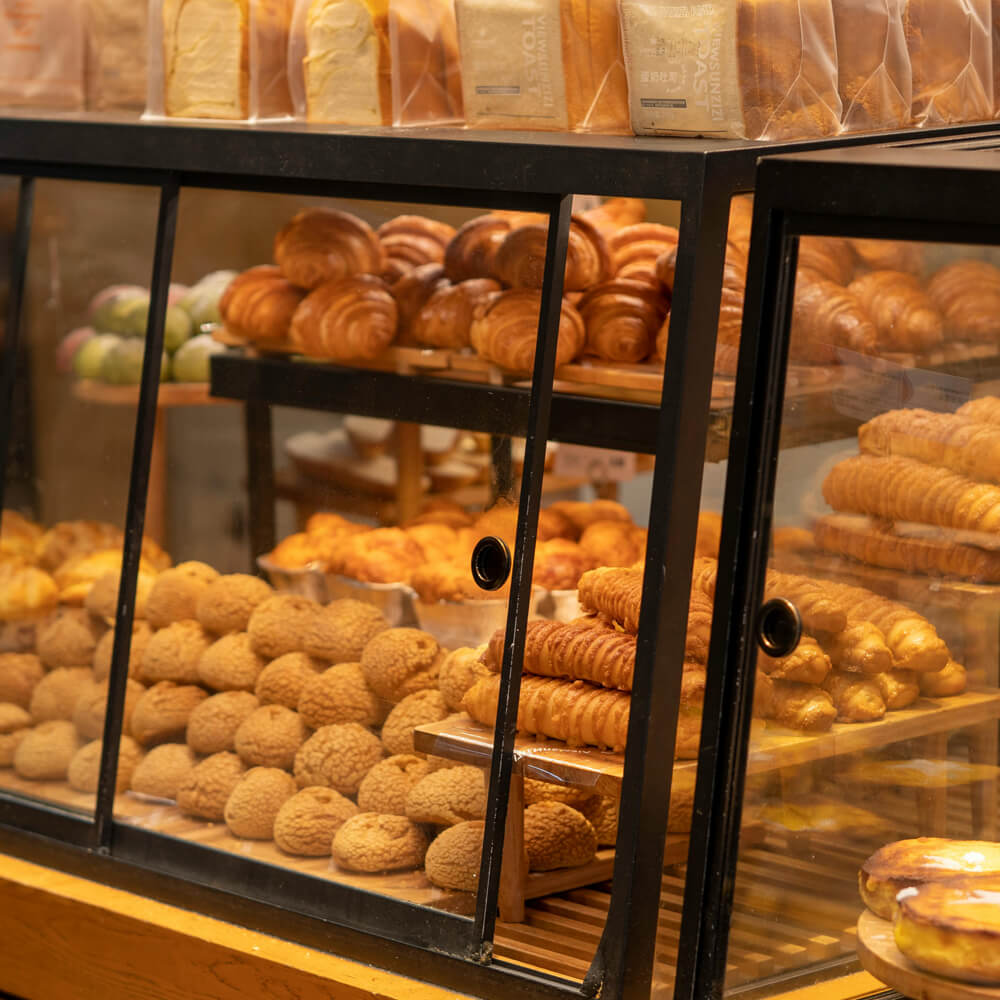Home » CNC Machining Materials: Metals and Plastics » PMMA: Custom PMMA CNC Machining Material Supplier in China
Custom PMMA (Acrylic) CNC Machining Services in China
Machining Optically Clear Components with a Glass-Like Finish and Superior Precision.
- ISO 9001 Certified
- Expert Polishing Services
- Lightweight Glass Alternative


Your Expert Partner for Acrylic Machining
Celerity Precision is a premier manufacturer in China specializing in the CNC machining of PMMA (Polymethyl Methacrylate), commonly known as Acrylic or by trade names like Plexiglas® and Lucite®. Acrylic is a rigid and naturally transparent thermoplastic prized for its outstanding optical clarity, high gloss, and excellent UV and weather resistance. It is the material of choice for applications requiring a lightweight, shatter-resistant alternative to glass, such as light pipes, lenses, display cases, and medical manifolds. Machining Acrylic to a pristine, polished finish is a specialized skill. Our facility is equipped with the right tools and expertise to transform raw acrylic stock into beautifully finished, optically clear components.
Why Choose PMMA (Acrylic) for Your Machined Parts
Acrylic is an excellent material for applications where clarity and aesthetics are paramount. It is a hard, stiff, and dimensionally stable plastic that can be machined to very tight tolerances. While it is more brittle than Polycarbonate, it is more scratch-resistant and has superior optical properties, transmitting up to 92% of visible light. At Celerity Precision, we use specialized cutting tools, optimized machine parameters, and advanced polishing techniques to minimize stress and achieve a flawless, glass-like finish on your machined Acrylic parts.
Exceptional Optical Clarity
Naturally transparent with better light transmission than glass or Polycarbonate.
Superior UV & Weather Resistance
Resists yellowing and degradation from long-term sun exposure, making it ideal for outdoor use.
High Gloss & Smooth Finish
Can be polished to a beautiful, high-gloss, glass-like finish.
Excellent Scratch Resistance (for a plastic)
One of the most scratch-resistant thermoplastics available.
Good Dimensional Stability
A rigid material that holds its shape and tolerances well.
Cost-Effective
A more affordable and easily machined alternative to Polycarbonate for many transparent applications.
Cast Acrylic
This is the premium grade for machining. The casting process results in a material with very low internal stress, higher molecular weight, and better chemical resistance, making it easier to machine cleanly and polish to a higher clarity.
| Tensile Strength, Yield (MPa) | 80 MPa |
| Elongation at Break (%) | 5% |
| Hardness (Brinnell) | 95 |
| Density (g/cm³) | 1.18 |
Extruded Acrylic
A more economical grade, extruded acrylic has slightly higher internal stresses and a lower melting point. While still a good material, it is more sensitive during machining and may not achieve the same level of polished clarity as cast acrylic.
| Tensile Strength, Yield (MPa) | 70 MPa |
| Elongation at Break (%) | 5% |
| Hardness (Brinnell) | 92 |
| Density (g/cm³) | 1.19 |
Surface Finishing Options for Acrylic
Post-processing is essential for achieving the signature transparent finish of Acrylic.
As Machined
The standard finish is a clean but translucent, frosted, or "tool-marked" surface. It is not transparent.
Polishing
A highly skilled technique where a controlled, high-temperature flame is passed over the machined surface, melting it to a smooth, glossy, and clear finish. Ideal for flat, external edges.
Painting
Acrylic can be painted, often on the second (back) surface to create a durable, high-gloss colored part with a sense of depth.
Pros and Cons of Acrylic CNC Machining
Pros
- Glass-Like Clarity: The best optical properties of any common thermoplastic.
- Weather and UV Resistant: The ideal transparent plastic for outdoor applications.
- Scratch Resistance: More resistant to surface scratches than Polycarbonate.
- Highly Polishable: Can be finished to an exceptionally high-gloss, decorative standard.
- Good Stiffness: A rigid material that resists bending and flexing.
Cons
- Brittle: Prone to chipping and cracking under impact; not as tough as Polycarbonate.
- Susceptible to Stress Cracking: Can craze or crack if machined with improper techniques or exposed to certain chemicals (like alcohol).
- Lower Chemical Resistance: Can be damaged by common solvents like acetone and gasoline.
- Requires Skilled Finishing: Achieving a perfectly clear finish requires specialized and often labor-intensive polishing techniques.
Applications of CNC Machined Acrylic Parts

Optical Engineering
Lenses, prisms, light pipes, and light guides for lighting and electronics.

Medical & Life Sciences
Transparent manifolds for fluid analysis, cuvettes, and housings for diagnostic equipment.

Consumer Electronics
High-end display screens, clear casings, and light-up logos or panels.

Retail & Display
Museum-quality display cases, signage, and point-of-purchase displays.

Automotive
Lenses for interior lighting, custom instrument panels, and light guides.

Architecture
Scale models and decorative interior design elements.
Acrylic Machining FAQ
What is the main difference between Acrylic (PMMA) and Polycarbonate (PC)?
Choose Acrylic when you need the best optical clarity, UV resistance, and scratch resistance. Choose Polycarbonate when you need the highest impact strength and toughness. Acrylic is brittle; Polycarbonate is virtually unbreakable.
Will my machined Acrylic part be transparent when I receive it?
Not unless you specify a polishing service. The standard “as machined” finish is translucent (frosted). You must select flame polishing, vapor polishing, or mechanical polishing to achieve a transparent, glass-like finish.
What is the difference between cast and extruded Acrylic?
Cast acrylic has lower internal stress and is the superior choice for machining, as it is less prone to cracking and can be polished to a higher clarity. Extruded acrylic is a more economical alternative. We recommend and primarily use cast acrylic for CNC machining.
How do you prevent Acrylic from cracking during machining?
We use extremely sharp cutting tools with specific geometries (zero rake angle), high spindle speeds, and appropriate coolants. This prevents heat buildup and stress that can lead to cracking.
Can Acrylic be glued or bonded?
Yes, it can be seamlessly bonded using a specialized solvent cement that chemically welds the pieces together, creating a very strong and often invisible joint.
How do I clean my Acrylic parts?
Use only a soft microfiber cloth with mild soap and water. Never use cleaners containing alcohol, ammonia, or other harsh solvents (like Windex), as these will cause the acrylic to craze and crack.
Can you tap threads directly into Acrylic?
Yes, threads can be tapped directly into acrylic, but care must be taken as it is a brittle material. For applications requiring frequent assembly, installing threaded inserts is a more durable solution.
Is Acrylic resistant to sunlight?
Yes, its excellent UV resistance is one of its key advantages. It will not yellow or become brittle with prolonged outdoor exposure, unlike many other plastics.
